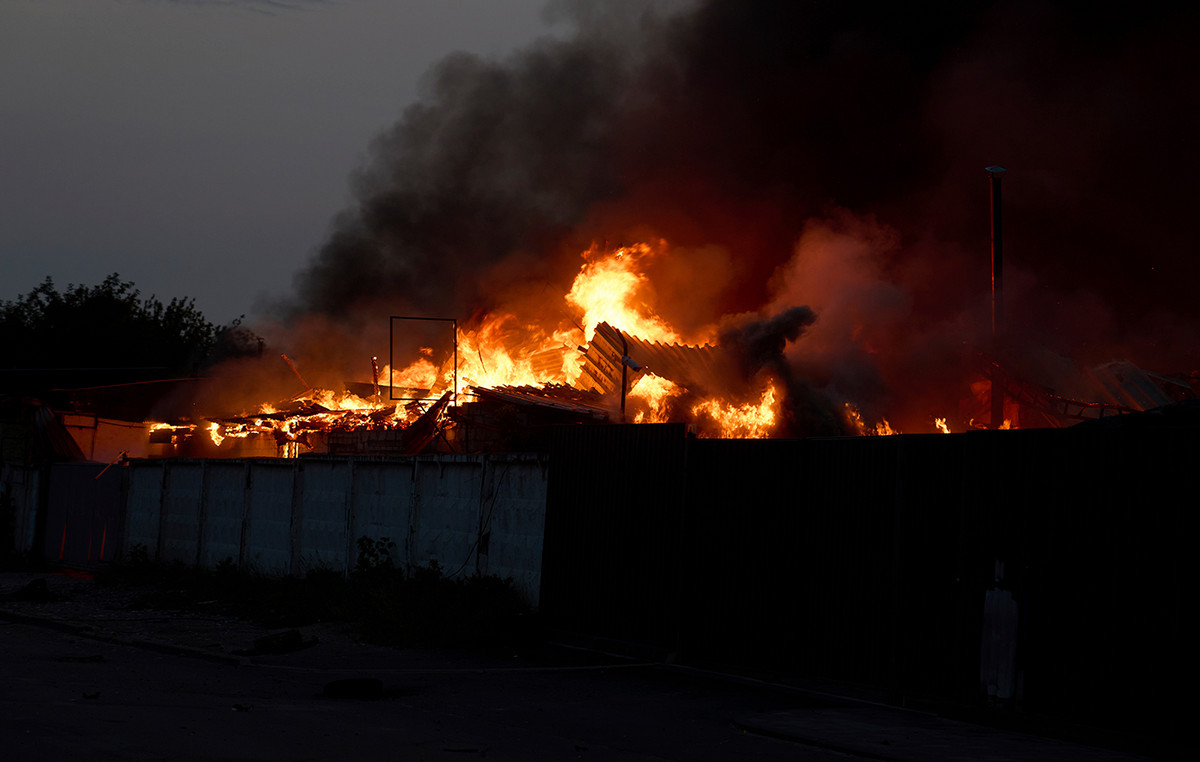Significant losses were recorded in European markets on Wednesday, with investors assessing inflation concerns on the one hand and waiting for tomorrow’s EU Summit on Ukraine, which will be attended by US President Joe on the other. Biden.
EU leaders will discuss developments in Ukraine and Russia’s ongoing offensive in the country, security and defense, as well as the energy crisis, at a two-day summit starting in Brussels tomorrow. On the first day of the summit he will participate together with the EU leaders. and the American president, while he will take part in the extraordinary NATO summit and in a meeting with the G7 leaders.
EU leaders have already agreed on the phasing out of Russian gas, oil and coal imports as soon as possible. An agreement at the summit on an immediate end to imports from Russia, as the US and the UK have already done, does not seem very likely, given Europe’s heavy dependence on Russian energy products and the lack of alternatives that could fill the gap. German Chancellor Olaf Solz said today that Europe would end its energy dependence on Russia, but that doing so overnight would lead to a recession, endangering hundreds of thousands of jobs and entire industries.
“Sanctions should not hit European countries harder than the Russian leadership,” Soltz told the Bundestag, the lower house of the German parliament, according to Reuters.
However, the summit is expected to result in new sanctions against Russia as well as the tightening of the existing framework for sanctions, as requested by Ukrainian President Volodymyr Zelensky.
Investment psychology is also plagued by ongoing concerns about inflation, as inflationary pressures have intensified due to the war in Ukraine.
Today, British Finance Minister Richie Sunak announced that the United Kingdom would immediately reduce fuel taxes, while announcing a longer-term tax cut for workers, in an effort by London to mitigate the blow to the biodiversity level. .
Inflation in the United Kingdom reached 6.2% in February, on an annual basis, climbing to its highest level since March 1992, as soaring food, fuel and energy prices are increasingly affecting the cost of living .
Federal Reserve Chairman Jerome Powell also said earlier this week that the US Federal Reserve was going to be more aggressive in tackling inflation, with investors now betting it would raise interest rates even faster.
Dashboard
On the board, the pan-European STOXX 600 index completed Wednesday’s trading with a fall of 1.01% to 454.02 points, with almost all industry indices and individual markets ending the day in negative territory.
The utility sector led the current decline, with the relevant index recording losses of 2.5%, with the oil and gas sector providing support, however, recording an increase of 2%.
In Frankfurt, the DAX index closed the day at 14,283.65 points, down 1.31%, while in Paris, the CAC 40 closed at 6,581.43 points, with losses of 1.17%. The FTSE 100 showed a better picture in London, which finished the session at 7,460.63 points, 0.22% lower.
In the region, the FTSE MIB index in Milan closed with losses of 0.96% at 24,298.66 points, while in Madrid the IBEX 35 fell 1.87% lower, to 8,328.40 points.
Source: Capital
I am Sophia william, author of World Stock Market. I have a degree in journalism from the University of Missouri and I have worked as a reporter for several news websites. I have a passion for writing and informing people about the latest news and events happening in the world. I strive to be accurate and unbiased in my reporting, and I hope to provide readers with valuable information that they can use to make informed decisions.







